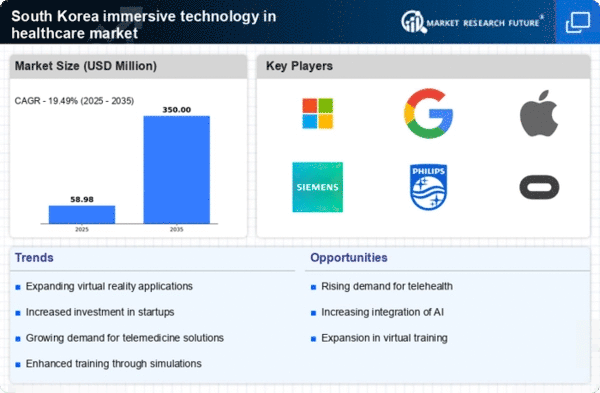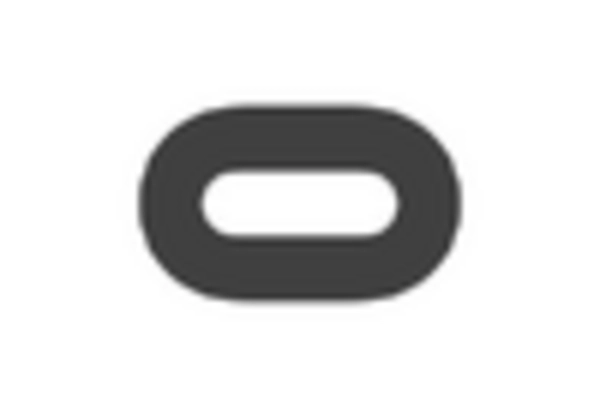Investment in Healthcare Infrastructure
Significant investments in healthcare infrastructure by the South Korean government are propelling the immersive technology-in-healthcare market. Initiatives aimed at modernizing hospitals and clinics include the integration of advanced technologies like VR and AR for training and patient care. The government has allocated over $500 million for digital health initiatives, which is expected to boost the adoption of immersive technologies. This financial commitment indicates a strategic move towards enhancing healthcare delivery and efficiency, positioning immersive technology as a cornerstone of future healthcare systems.
Growing Focus on Mental Health Treatment
The heightened awareness of mental health issues in South Korea is driving the immersive technology-in-healthcare market. Therapeutic applications of VR are being explored for conditions such as anxiety and PTSD, providing immersive environments for exposure therapy. Studies suggest that VR therapy can reduce symptoms in patients by approximately 40%. This growing focus on mental health not only expands the market for immersive technologies but also encourages healthcare providers to adopt innovative solutions that cater to psychological well-being, thereby enhancing overall patient care.
Technological Advancements in Healthcare
The rapid evolution of technology in South Korea is a key driver for the immersive technology-in-healthcare market. Innovations in virtual reality (VR) and augmented reality (AR) are enhancing medical training and patient treatment. For instance, the integration of VR simulations in surgical training has shown to improve skill acquisition by up to 30%. Furthermore, the immersive technology-in-healthcare market is projected to reach a valuation of $1.5 billion by 2026, indicating a robust growth trajectory. This technological progress not only enhances the quality of care but also attracts investments from both public and private sectors, thereby fostering a conducive environment for further advancements.
Rising Demand for Remote Healthcare Solutions
The increasing need for remote healthcare services in South Korea is significantly influencing the immersive technology-in-healthcare market. As the population ages, the demand for accessible healthcare solutions rises. Immersive technologies, such as telemedicine combined with AR, allow healthcare providers to deliver services remotely, improving patient engagement and satisfaction. Reports indicate that the telehealth market in South Korea is expected to grow at a CAGR of 25% through 2027. This trend underscores the potential of immersive technology to bridge gaps in healthcare delivery, making it a vital component of the evolving healthcare landscape.
Collaboration Between Tech Companies and Healthcare Providers
The collaboration between technology firms and healthcare providers in South Korea is a crucial driver for the immersive technology-in-healthcare market. Partnerships are emerging to develop tailored solutions that leverage immersive technologies for training, diagnostics, and treatment. For example, collaborations have led to the creation of AR applications that assist surgeons during complex procedures, improving accuracy and outcomes. Such synergies not only enhance the capabilities of healthcare professionals but also stimulate innovation within the immersive technology sector, fostering a dynamic ecosystem that benefits all stakeholders.
















